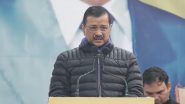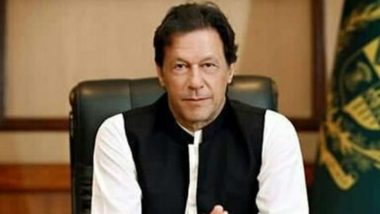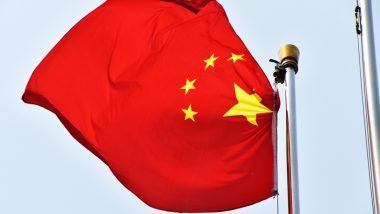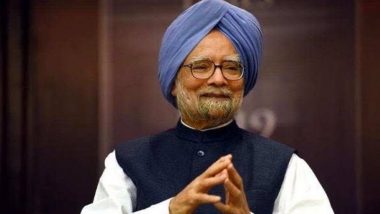Beijing, November 1: Imran Khan will arrive here Friday in what is termed as the most significant visit to China by a Pakistani Prime Minister in recent years as the all-weather allies grapple to iron out differences over the CPEC and Islamabad approaching 'friendly nations' to seek an IMF bailout.
During his four-day visit, Khan is scheduled to hold talks with Chinese President Xi Jinping and Premier Li Keqiang and expected to sign several agreements. Khan is also one of the heads of countries who would attend the inaugural meeting of China's biggest international import expo to be held in Shanghai from November 5.
While it is a routine for a new Pakistan Prime Minister to visit China considering the “iron brother” relationship between two countries and militaries, Khan's visit evoked considerable interest as it comes in the wake of his past criticism of the USD 60 billion China-Pakistan Economic Corridor (CPEC) projects and remarks by his ministers to down size some of the projects over debt concern. Protests Erupt In Pakistan over Asia Bibi's Acquittal, PM Imran Khan Backs Supreme Court Decision.
The cricketer-turned-politician, during his first visit to China, is also expected to seek more Chinese loans to avoid approaching IMF for a bailout package.
Soon after the government headed by Khan was formed, Pakistan's Commerce and Industry Minister Abdul Razak Dawood told the Financial Times that the new government would review all the CPEC projects. He also reportedly said that some of the agreements were unfair to Pakistani companies and should be put on hold for a year.
Few days later, Railway Minister Sheikh Rashid let off another bombshell by saying that Pakistan wants to cut the size of the USD 8 billion Karachi-Peshawar rail line, the biggest project of the CPEC, by USD 2 billion. China Defends CPEC as Pakistan Assesses Viability of 'Debt Trap' Project.
The statements evoked serious concerns in China as the CPEC is the flagship project of Xi's pet multi-billion Belt and Road Initiative (BRI). The CPEC has also become a major irritant in India-China relations with New Delhi voicing its opposition to the infrastructure project as it traverses through Pakistan-occupied Kashmir (POK).
Khan, however, assured his support to the CPEC when Chinese State Councillor and Foreign Minister Wang Yi visited Islamabad on September.
China also agreed to address his concerns that the CPEC projects were mainly benefitting the dominant Punjab region and the new projects will focus on the western region of Balochistan and Khyber Pakhtunkhwa.
From Beijing's point of view, Pakistan's criticism of the project was a shocker, specially after China's takeover of Sri Lanka's Hambantota port on 99-year lease as debt swap.
A recent write up in the Hong Kong-based South China Morning Post said, “According to the few financial details of the CPEC that are available, Pakistan is not benefiting significantly from the programme...Although China has lent Pakistan USD 26 billion-USD 30 billion for power and transport projects that are part of the economic corridor, not a single dollar has entered the Pakistani banking channels.”
“Instead, Chinese banks give the loans to Chinese companies, which buy equipment in China and use it in Pakistan. Consequently, instead of gaining economic benefits, Pakistan is running up huge debts and risking fiscal default,” it said.
Also, China is concerned over cash-strapped Pakistan's plans to approach the International Monetary Fund for a bailout amid assertions by the global lender officials to scrutinise the CPEC loans.
Beijing is also uncomfortable over Pakistan roping in Saudi Arabia to invest in Balochistan bordering Iran. The province is key to the CPEC as it terminates at the strategic Gwadar port located there. The CPEC connects China's Xinjiang province with Gwadar through a rail, road and pipeline network. China do not want the CPEC projects to get caught in the Saudi-Iran rivalry.
For its part, China has been giving a top billing for Khan's visit and vehemently deny the debt concerns. Khan's visit to China will provide an "opportunity" for the two countries to open a "new chapter" of bilateral relations "under the new circumstances”, Chinese Foreign Ministry spokesman Lu Kang said on Monday.
Lu also refuted criticism that the CPEC is causing financial and debt problems for Pakistan, saying Islamabad has already made it clear that debts incurred by the CPEC only account for a very small portion of Pakistan's total debts and is not a reason why the country is experiencing financial difficulties.
Khan's visit to China comes at a time when radical Islamists, defying the prime minister's stern warning, are holding protests across Pakistan against the acquittal of a Christian woman sentenced to death for committing blasphemy.
Asia Bibi, 47, was convicted in 2010 after being accused of insulting Islam in a row with her neighbours. She always maintained her innocence, but has spent most of the past eight years in solitary confinement.
The apex court's judgement, which was pronounced Wednesday, triggered agitations across Pakistan with protestors led by Islamic political party Tehreek-i-Labaik Pakistan and other groups blocking major highways and roads in different parts of the country.













 Quickly
Quickly





















